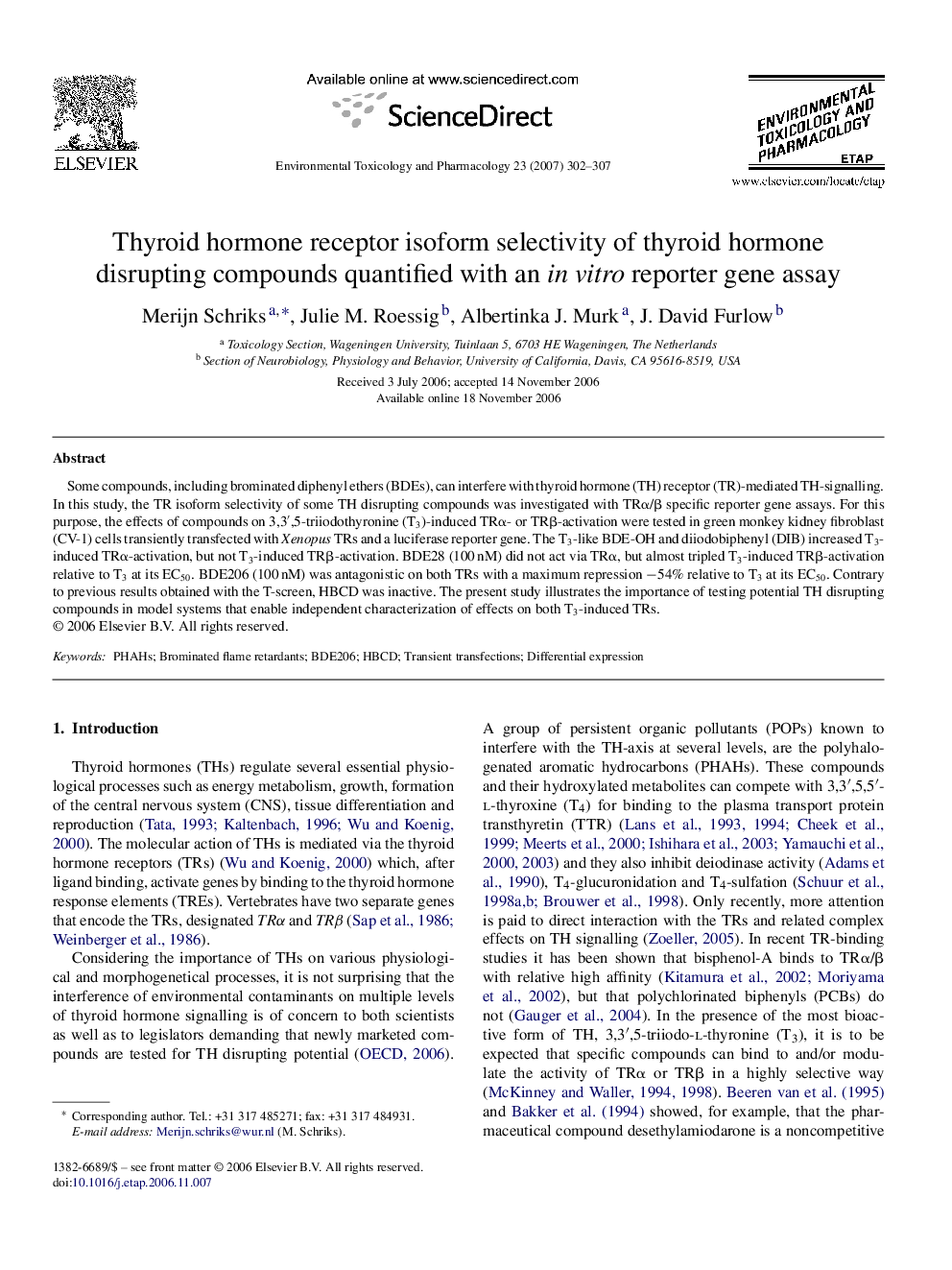| Article ID | Journal | Published Year | Pages | File Type |
|---|---|---|---|---|
| 2584518 | Environmental Toxicology and Pharmacology | 2007 | 6 Pages |
Some compounds, including brominated diphenyl ethers (BDEs), can interfere with thyroid hormone (TH) receptor (TR)-mediated TH-signalling. In this study, the TR isoform selectivity of some TH disrupting compounds was investigated with TRα/β specific reporter gene assays. For this purpose, the effects of compounds on 3,3′,5-triiodothyronine (T3)-induced TRα- or TRβ-activation were tested in green monkey kidney fibroblast (CV-1) cells transiently transfected with Xenopus TRs and a luciferase reporter gene. The T3-like BDE-OH and diiodobiphenyl (DIB) increased T3-induced TRα-activation, but not T3-induced TRβ-activation. BDE28 (100 nM) did not act via TRα, but almost tripled T3-induced TRβ-activation relative to T3 at its EC50. BDE206 (100 nM) was antagonistic on both TRs with a maximum repression −54% relative to T3 at its EC50. Contrary to previous results obtained with the T-screen, HBCD was inactive. The present study illustrates the importance of testing potential TH disrupting compounds in model systems that enable independent characterization of effects on both T3-induced TRs.
